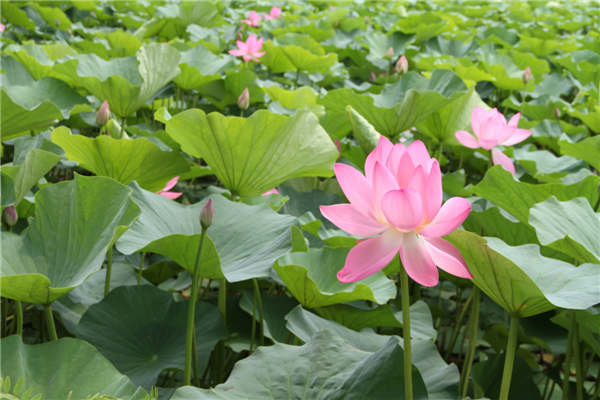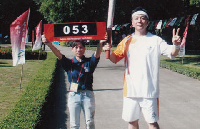Purity of purpose
 |
|
[Photo by Zhu Chengpei / China Daily] |
In 1995 he met J. William Schopf, a paleobiologist from the University of California, in Xipaozi village where the ancient seeds had been discovered.
In a thesis published in the American Journal of Botany in 2002, Schopf wrote: "A 1,300-year-old lotus fruit, recovered from an originally cultivated but now dry lakebed in northeastern China, is the oldest germinated and directly 14C-dated fruit known. In 1996, we traveled to the dry lake at Xipaozi village, China, the source of the old viable fruits."
Xu asked himself: "A foreign scholar is willing to study the ancient seeds so attentively. Should we just sit idly by?"
He took over a pond about 4 kilometers away from the center of Pulandian and started to plant the ancient seeds.
"Even though it was being called the homeland of the ancient lotus, Pulandian didn't even have lotus pond then," Xu says.
Local chronicles show a big earthquake hit Pulandian in 1475. Xu says it is believed that the earthquake dried up all the lotus pools and made the once-flourishing lotuses disappear.
Knowing he was determined to persist with such an unprofitable project, his wife Guan Li said no and asked for a divorce.




















